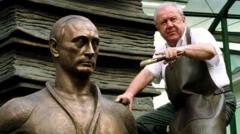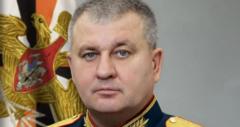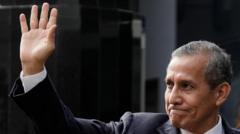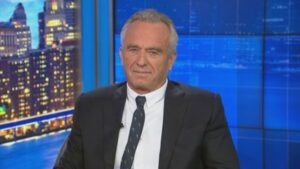The appointment of Mikheil Kavelashvili, a far-right former soccer player, as Georgia's new president has ignited political unrest, deepening divisions in the country after recent protests and a disputed election.
Turmoil in Georgia: Far-Right Soccer Star Takes Presidential Seat

Turmoil in Georgia: Far-Right Soccer Star Takes Presidential Seat
Georgia’s Parliament selects Mikheil Kavelashvili as president amid opposition boycott and allegations of election fraud.
Georgia’s political landscape took a sharp turn on Saturday as lawmakers presented the presidency to Mikheil Kavelashvili, a former soccer star and far-right politician, amidst a boycott by opposition parties. Kavelashvili's selection intensifies the ongoing political crisis following protests over a controversial parliamentary election marked by claims of vote manipulation and violence.
The 53-year-old ex-Manchester City striker, now aligned with the conservative Georgian Dream party, was the only candidate for the presidency—a stark departure from the direct elections held until seven years ago. This electoral shift has drawn criticism from opposition groups, which are decrying a significant erosion of democratic practices in the nation.
In a statement filled with defiance, Kavelashvili is slated to take office in 15 days, setting the stage for a confrontation with the current pro-Western president, Salome Zourabichvili. Zourabichvili, who was elected through public vote, has labeled the procedures surrounding Kavelashvili's election as a “mockery of democracy,” igniting fears of heightened political strife.
While Zourabichvili’s term remains a point of contention, she has pledged to resist the inauguration of Kavelashvili until new elections are arranged, positioning herself alongside the opposition. The constitutional court's recent dismissal of her electoral challenge adds to the uncertainty about her potential actions.
Kavelashvili's preference for closer ties with Russia and China stands in stark contrast to the pro-European stance of his predecessor. His remarks this year suggest a narrative of Western conspiracy aimed at provoking conflict with Moscow, recognizing Georgia's historical ties under Russian rule that persisted until 1991.
As Georgia navigates this intricate political climate, the ramifications of Kavelashvili's presidency promise to resonate deeply within the realm of international relations and domestic governance.






















